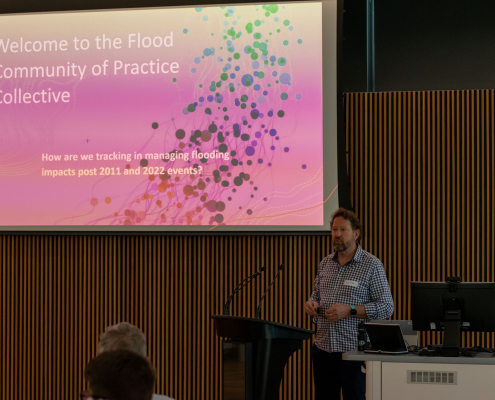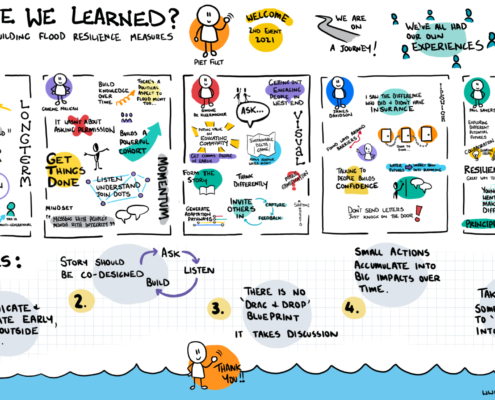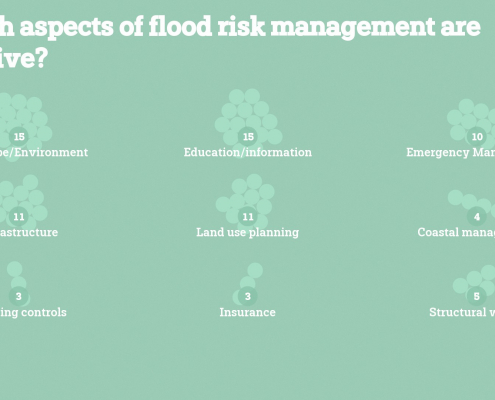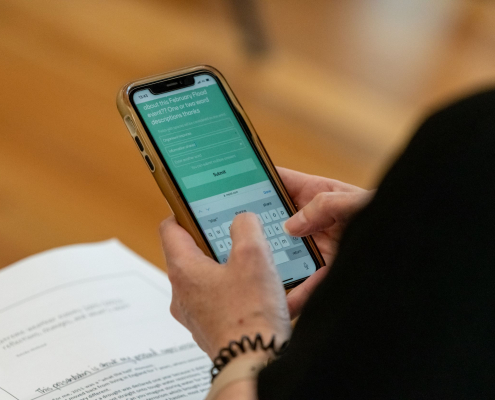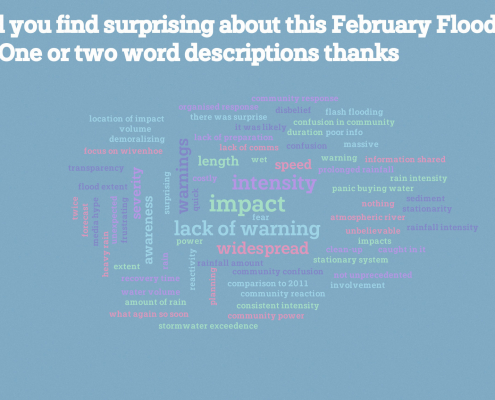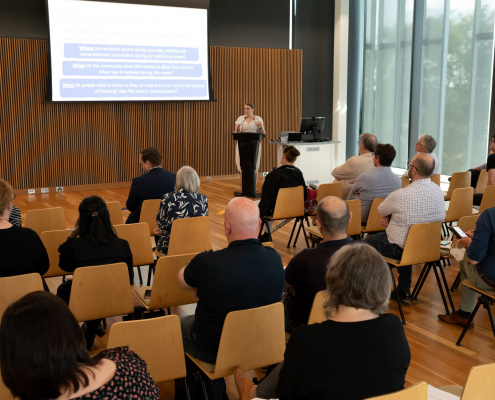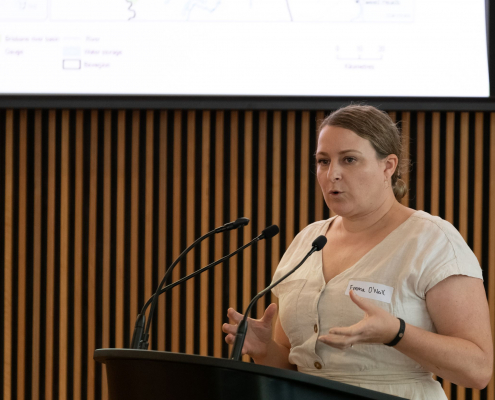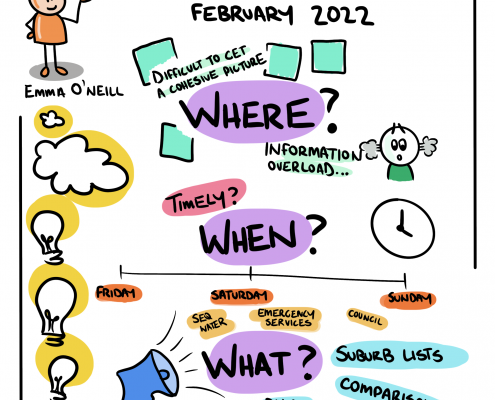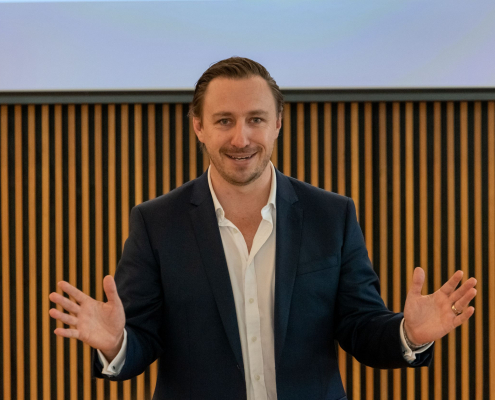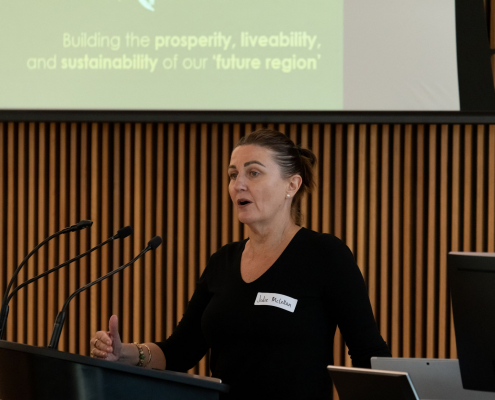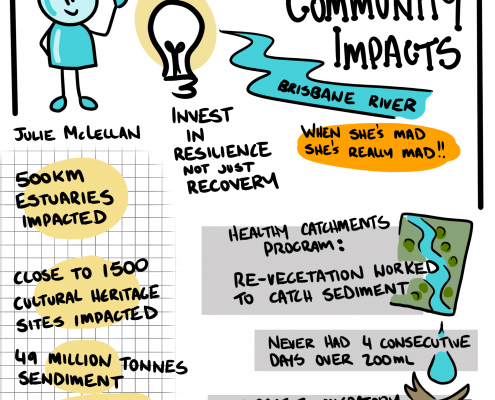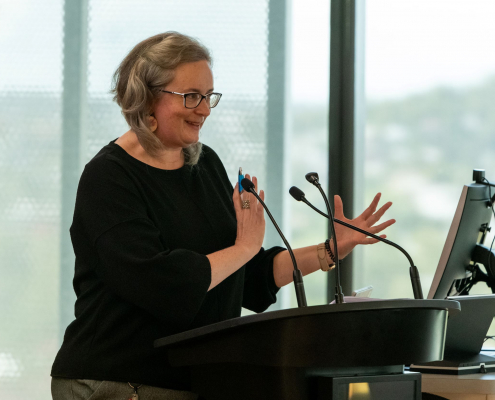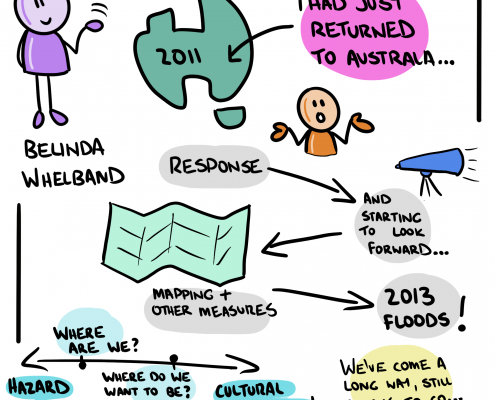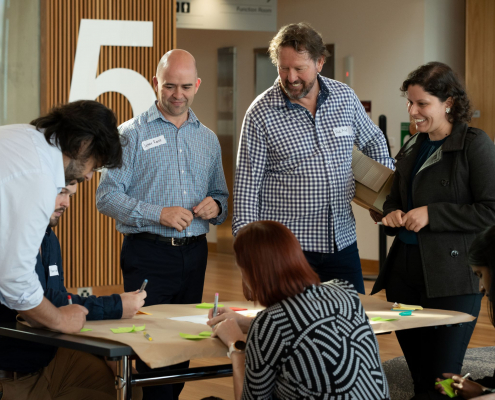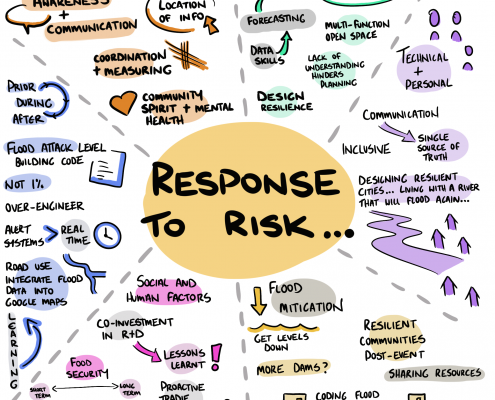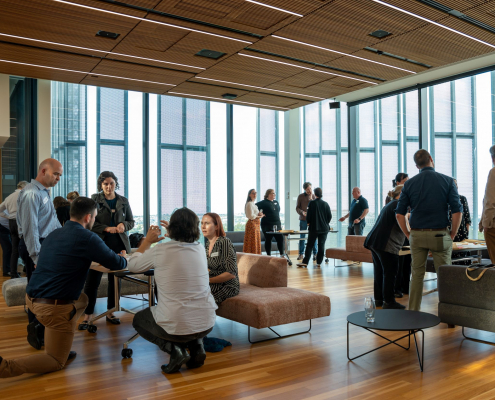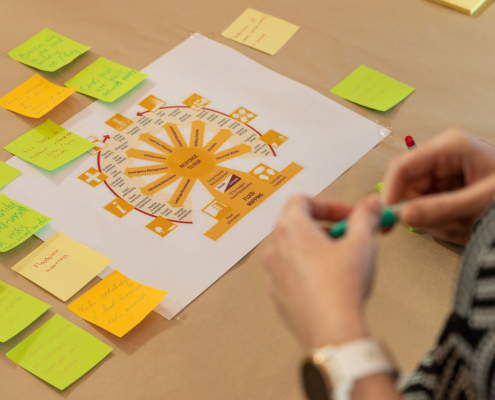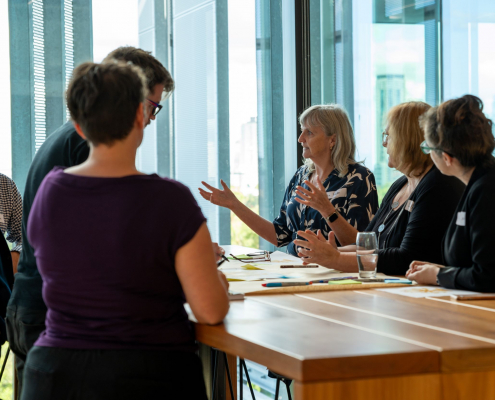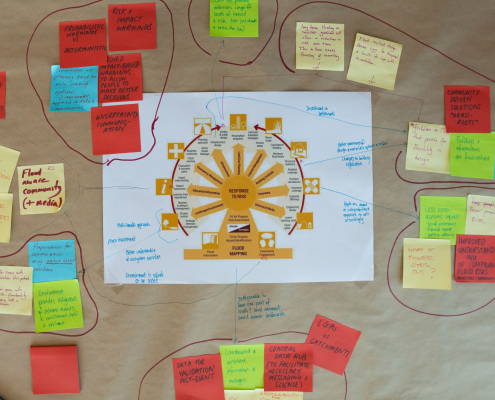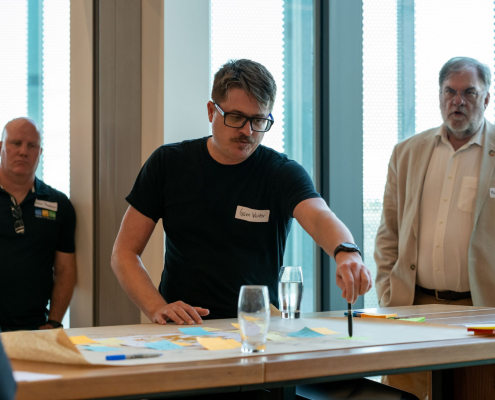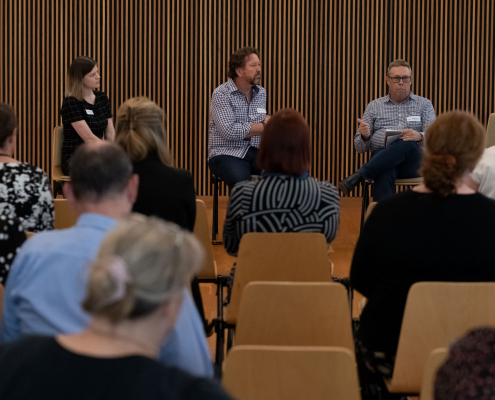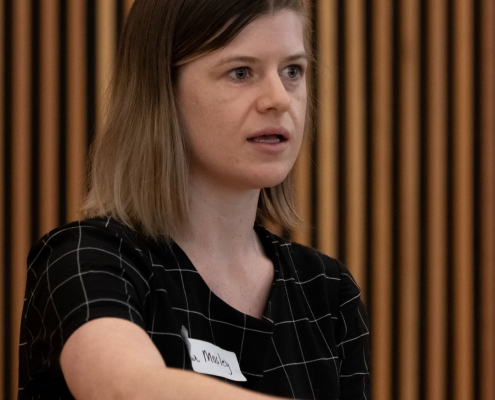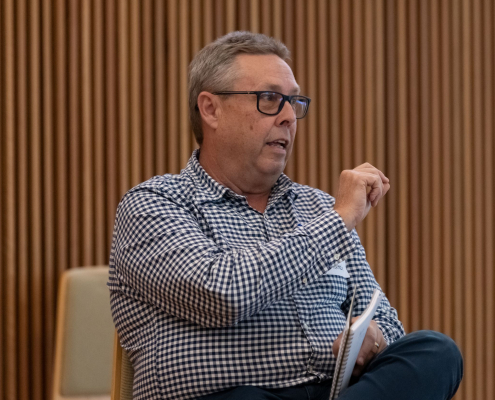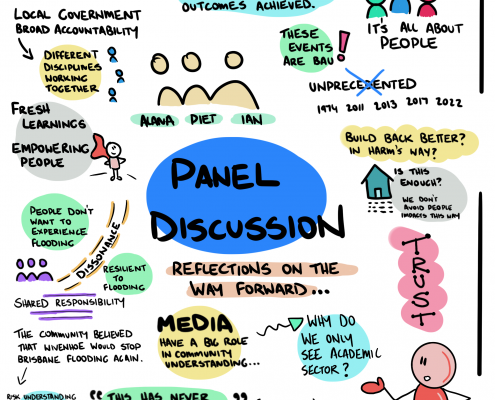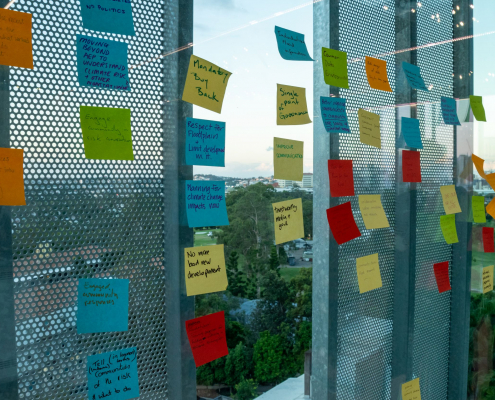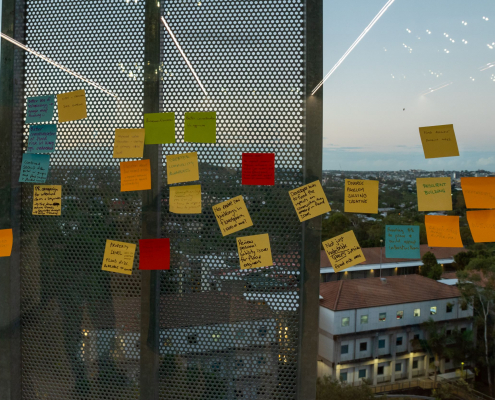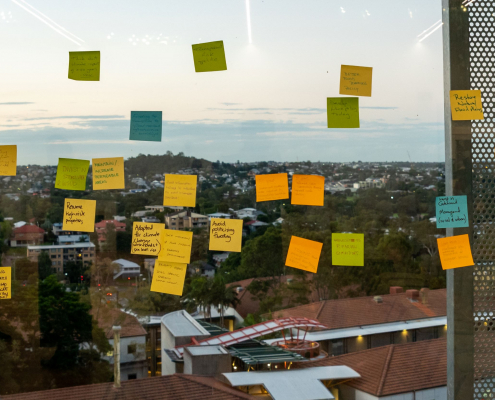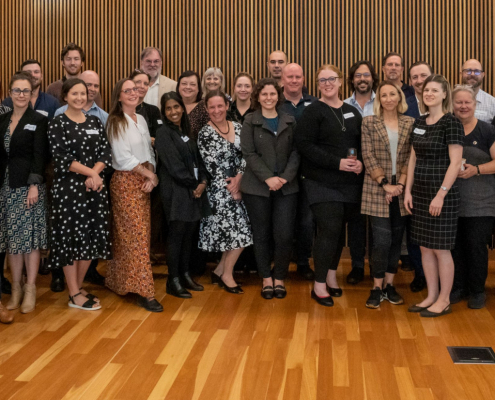Post the Floods of February 2022 – what can we learn???
Why did we hold this event??
The recent February 2022 floods in Queensland and NSW extended over a wide number of communities and the range of impacts are different to past events. So what does that tell us??? Yes “no two floods are the same ” – is one important comment, but as professionals – in all sorts of roles – the aim of this debrief workshop was to share our collective observations and insights from this recent event.
What was on Offer?
The afternoon event was based on a mix of:
- feedback from participants on the recent events
- presentation’s on impacts from 4 contrasting perspectives
- small group activity of measures to achieve flood resilience
- panel discussion on future steps forward
- group brainstorming on foundational , medium and long term needs
Succeeding with Flood Resilience is a long game
This success is embedded with an authentic need to be reflect, listen and learn. Last year we did a reflection of what we have learnt over the last 10 years, and is a complimentary insight to this event and is worth reading here.
Who joined us for the event?
The event on Tuesday 3 May 2022 attracted a healthy diversity of 40 colleagues, namely colleagues from:
- Local Government – Ipswich City Council and Moreton Bay Regional Council
- State Government – Dept of Energy and Public Works and Qld Reconstruction Authority
- Consultants – Aurecon, Darwinina Consulting, E2Designlab, GHD, HydroRock, Mott Macdonald and Water Technology
- Insurance – Auto&General
- Academics and Students – Griffith University and QUT
- NRM Group – Healthy Land and Water
- Water Utility – Urban Utilities
Within the group, the frequency of skills to deal with various aspects of flood risk reduction are depicted in the diagram below.
View from the group on what they thought was surprising about this recent February 2022 flood event
This word-cloud, from a Mentineter survey with the group, gives you a feel for aspects of the type of event, warning and communication with the community and impact.
Initial view of what was good and what was missing
The group was engaged to do an initial reflection on two aspects of this February event:
- What do you understand was in place to help deal with the event and its impacts? -A collation of the responses are listed here
- What do you think was a gap in terms of the effort to respond to the event both during and prior to the vent unfolding? A collation of the response are listed here
Guest Presentations
Presentation on communication and messaging
Emma O’Neill – Manager Environment & Planning, Aurecon. Emma explores the various public messages and communication that unfolded during and before the event
A copy of her presentation talk is here.
Presentation on the nature and extent of the impacts
Will Prentice – Flood Risk Specialist and National Practice Lead – Resilience & Adaptation – Water Technology. Will describes the types of flood impacts that occurred across the different regions of this event
A copy of his talking points can be viewed here.
Presentation on the impacts on catchments and waterways
Julie McLellan – CEO Healthy Land and Water. Julie describes the work her team has been undertaking with rapid assessments of the environmental impacts of the recent events. A copy of her presentation is here.
Presentation of what has been underway and partly in place since 2011 floods
Belinda Whelband – Team Leader Strategic Catchment and Conservation Planning, Ipswich City Council. Belinda has seen a wide mix of measures planned and implemented since the 2011 floods, and this information will help to appreciate what has been unfolding prior to this event. A copy of this presentation is here.
What is the ongoing community, catchment and place based resilience building process that needs to continue and build on efforts since 201 floods?
Panel guests – Alana Mosley Principal Floodplain Management Engineer at Moreton Bay Regional Council and Iain McKenzie with various University, Board and consulting roles and previously the Queensland Inspector General Emergency Management discussed options to the challenge posed above.
Plus, this was followed by a group brainstorming activity on what are the foundational, medium and long term actions needed to lock in long term flood risk reduction programs followed. More details on these suggestions to come.
Thanks to the support team at this event, namely:
- Engagement co-ordinator – Sarah Cochrane
- Graphic Notetaker – Hayley Langsdorf – Thoughts Drawn out Loud
- Photographer – Adam Waters
- HDR Griffith Students – Jane Toner and Sheriden Keegan
- Catering – The team from C’est Bon Restaurant

